
Defense Health Official Urges Personnel, Families to Wear Face Masks
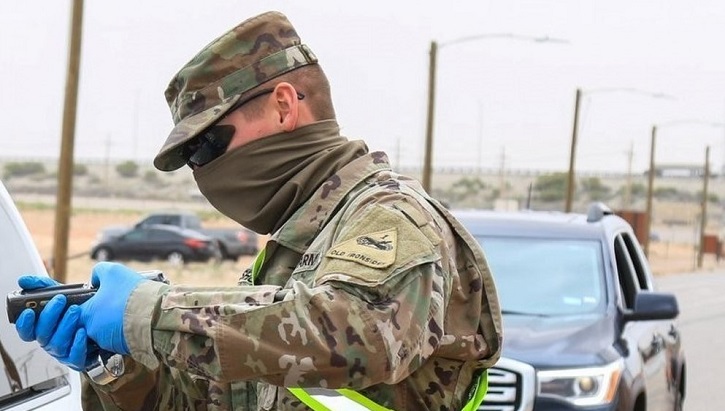
Per Army guidance, soldiers are authorized to wear the neck gaiter and other cloth items, such as bandanas and scarves, as face coverings. Soldiers should not, however, fashion face coverings from Army combat uniforms or other materials that have been chemically treated. Personal protective equipment, such as N95 respirators or surgical masks, must be reserved for use in medical settings. (Courtesy Photo)
The Department of Defense urges individuals on DOD property, installations and facilities to wear cloth face coverings when a 6-foot social distance cannot be maintained to help prevent the spread of COVID-19," Navy Cmdr. (Dr.) Cameron J.L. Nelson, chief of DHA's occupational medicine branch, said, noting that this complies with guidance disseminated by the Centers for Disease Control and Prevention.
"This guidance is especially important for families and others who may need to go out in public to perform essential tasks, such as food shopping," he added.
The face-covering mask can be fashioned from simple household items such as a clean T-shirt or cloth, as demonstrated in CDC's do-it-yourself guide.
Because surgical face masks and other personal protective equipment are in short supply in the health care arena across the United States, the CDC advises that homemade cloth face coverings should:
- Fit snugly but comfortably against the side of the face;
- Be secured with ties or ear loops;
- Include multiple layers of fabric;
- Allow for breathing without restriction; and
- Be able to be laundered and machine dried without damage or change to the shape.
CDC officials say cloth face coverings are especially critical in areas of significant community-based transmission.
Using a simple cloth face covering not only can slow the spread of COVID-19, but also can help those who could unknowingly have the virus from spreading it to others, the CDC said.
Cloth face coverings should not be placed on children younger than age 2, on anyone who has trouble breathing or who is unconscious, incapacitated or otherwise unable to remove the mask without assistance, the CDC advises.
Cloth face coverings should be washed routinely in a washing machine, CDC authorities said.
When removing a used face cloth covering, the CDC says people should use caution and not touch their eyes, nose or mouth, and immediately wash their hands after taking the covering off.
The CDC emphasizes that its recommendation on face cloth coverings complements, and does not replace, the President's Coronavirus Guidelines for America, 30 Days to Slow the Spread, which remains the cornerstone of the national effort to slow the spread of the coronavirus.
CDC officials will make additional recommendations as the evidence for appropriate public-health measures continues to develop.
"Everyone must do their part to protect themselves and their families," Nelson said.
Disclaimer: Re-published content may be edited for length and clarity. Read original post.
Talking to children about COVID-19 helps them feel safe and secure
Article
4/8/2020

USU expert advises tailoring messages for different age groups
Joint Staff Surgeon Praises Americans Stepping Up to Help COVID-19 Victims
Article
4/7/2020
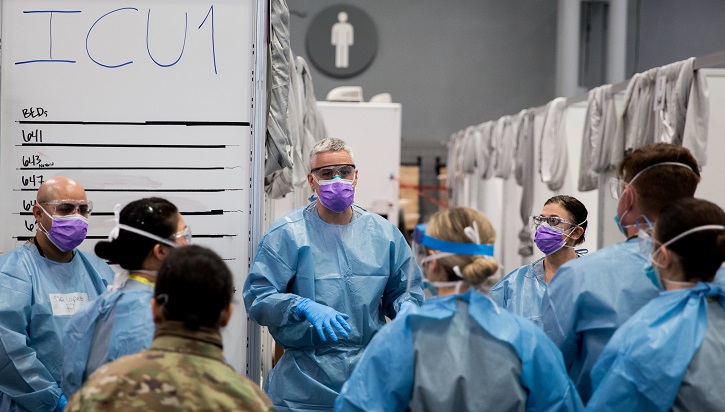
It's about people helping people, flattening the curve, and slowing the spread of the pandemic so hospitals have a bit more time to prepare.
VENDOR UNSOLICITED PROPOSAL IN SUPPORT OF COVID-19
Form/Template
4/7/2020
Unsolicited Proposal Information Supporting COVID-19
New York City emergency room doc joins Air National Guard as flight surgeon
Article
4/6/2020
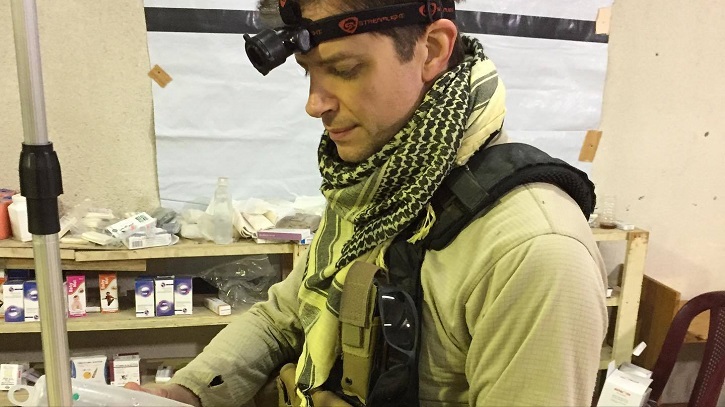
Paladino is Associate Professor of Emergency Medicine at SUNY Downstate Medical Center and also at Kings County Hospital Center.
DoD Guidance on the Use of Cloth Face Coverings
Publication
4/5/2020
Effective immediately, to the extent practical, all individuals on DoD property, installations, and facilities will wear cloth face coverings when they cannot maintain six feet of social distance in public areas or work centers (this does not include in a Service member's or Service family member's personal residence on a military installation).
Policy on Accessions and Accessions Training during the COVID-19 Outbreak
Publication
4/3/2020
The Military Departments must seek ways to maximize accessions in a responsible manner to minimize a reduction in military end strength and the potential deterioration of mid-and long-term readiness and capacity.
It’s complicated: Our relationship with social media
Article
4/3/2020
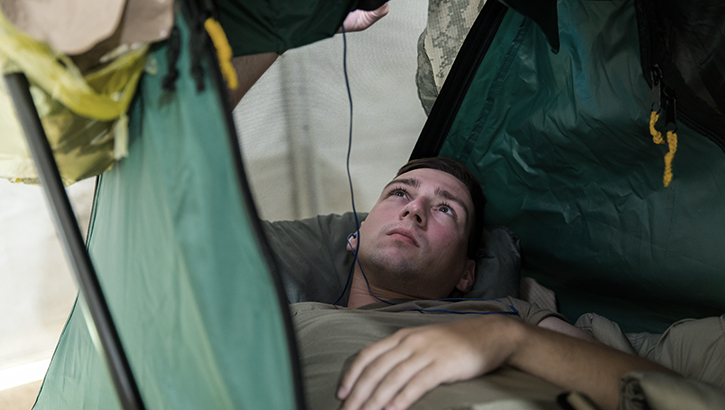
COVID-related story on perils of social media
250-patient Army field hospital in Seattle expected to open next week
Article
4/3/2020
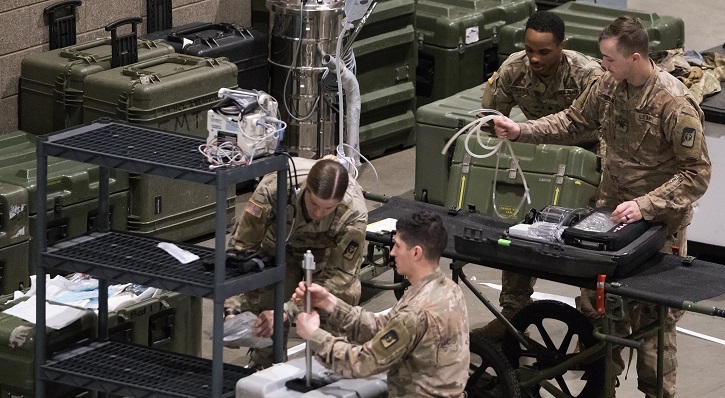
The field hospital...will relieve some of the burden on local hospitals, allowing them "freedom of maneuver" to better take care of patients who have COVID-19
Navy secretary visits hospital ship Mercy in Port of Los Angeles
Article
4/2/2020
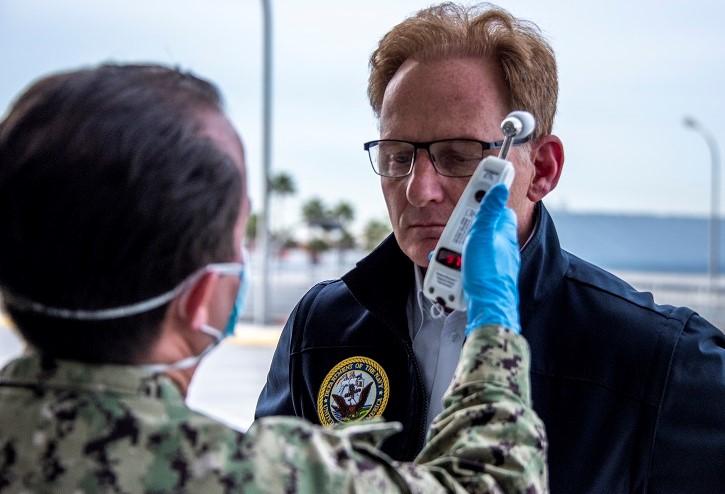
Mercy deployed in support of the nation’s COVID-19 response efforts, and will serve as a referral hospital for non-COVID-19 patients currently admitted to shore-based hospitals.
Transition of Military Medical Treatment Facilities from Military Departments to the Defense Health Agency during the COVID-19 Response
Publication
4/2/2020
The Department's MTF transition plan is conditions-based. While the transition of MTFs to DHA is continuing, the COVID-19 response requirements are impacting DHA's ability to meet all required conditions. The need for the DHA and MILDEPs to refocus efforts away from the transition to support the COVID-19 response led to questions regarding the future of MTF Transition.
Exemption - Stop Movement for Travel for DoD Components in Response to COVID-19
Publication
4/1/2020
DoD personnel supporting presidential support duties are exempt from the "Stop Movement for Travel" directive
From the front lines to the home front, Military Medicine is always ready
Article
4/1/2020
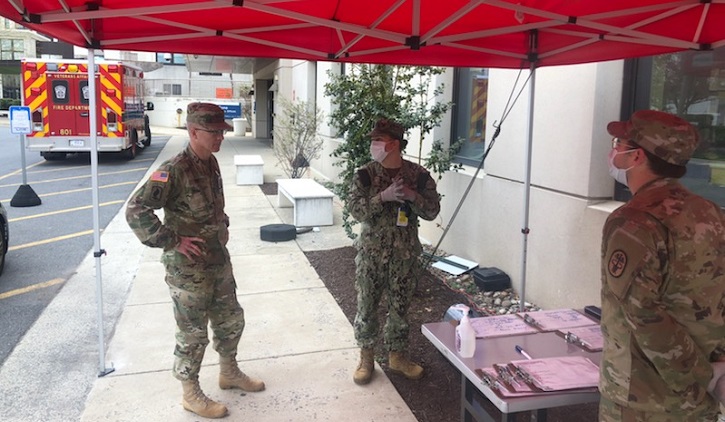
Military medicine is providing assistance in unprecedented ways
Pharmacy Guidance for Market MTFs
Publication
3/31/2020
Message to Pharmacy Beneficiaries regarding military pharmacy services during the COVID-19 pandemic.
Tiered Telehealth Health Care Support for COVID-19
Publication
3/31/2020
This memorandum establishes guidance for the use of Telehealth (TH) Information Technology (IT) tools in support of the clinical care required for patients across the spectrum of COVID-19 illness
Possible changes at MTF pharmacies in response to COVID-19
Article
3/31/2020
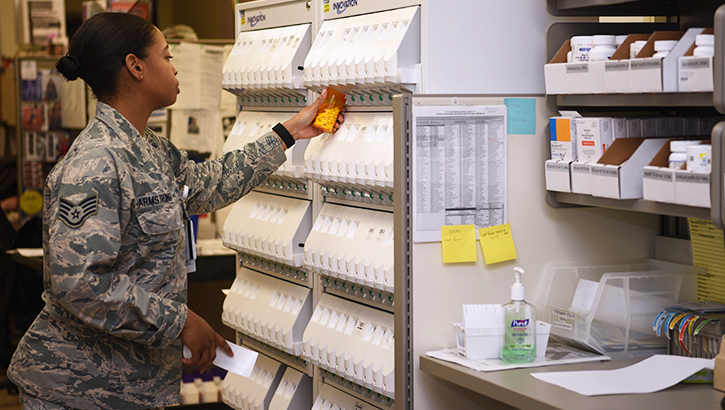
Find out the latest pharmacy policies at MTFs





















.png)












No hay comentarios:
Publicar un comentario